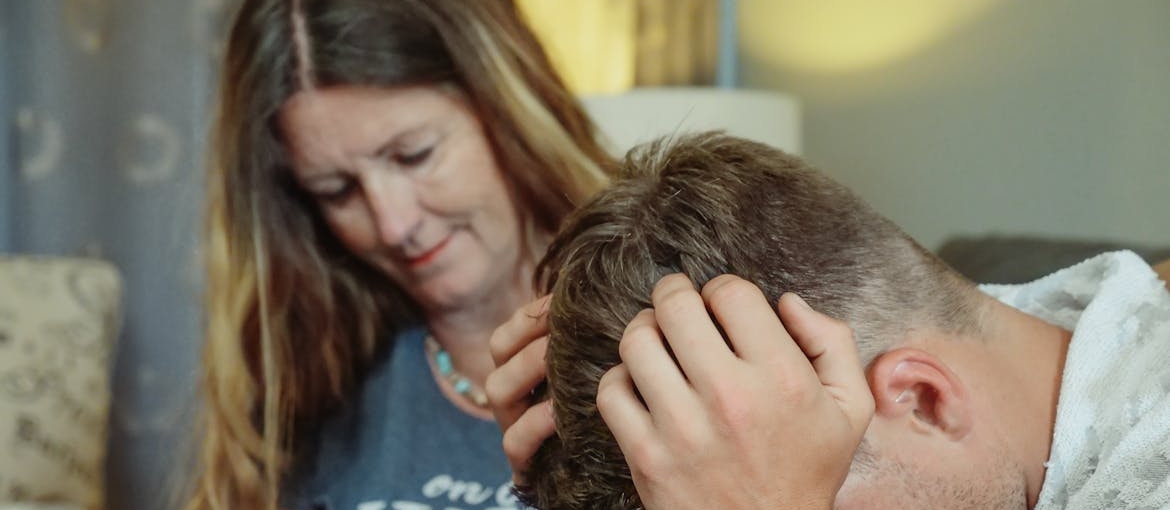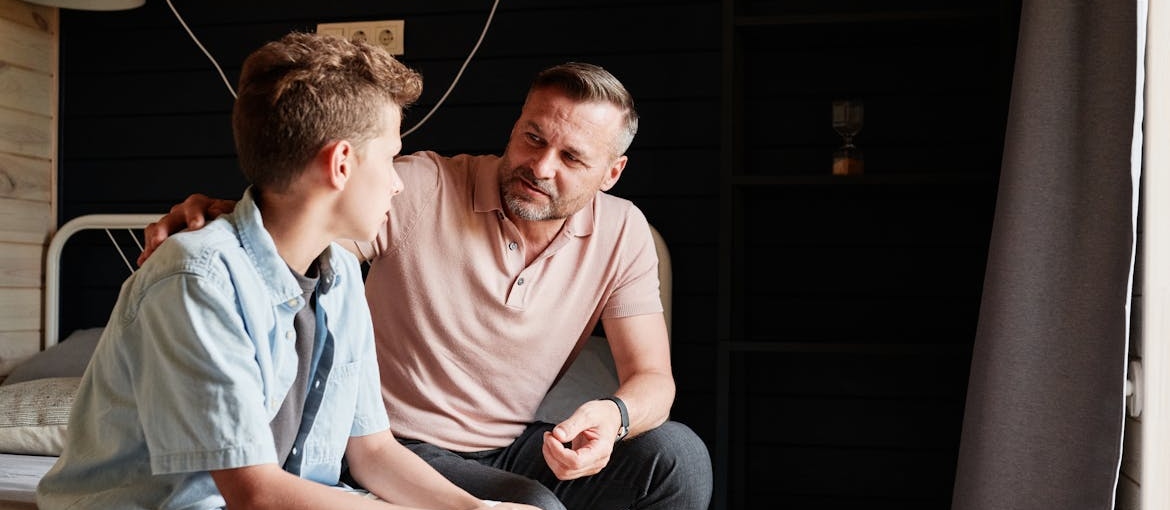It’s a big step when your teen finishes rehab, but your role is far from over. They’re coming home to a world that looks the same, even though everything feels different now. You might feel unsure about what to say or do next. That’s normal. The truth is, how you act now matters a lot. Learning how to support a teen who’s just completed rehab takes patience, honesty, and steady support. You don’t have to do it perfectly. You just have to show up, listen, and make healthy choices with them. If things get tough, drug and alcohol treatment centers in West Virginia can continue to help. This article breaks down what really helps teens stay on track after rehab—and how you can be the steady support they need at home.
Understanding What Rehab Really Means for a Teen
Rehab is not a reset button. It’s hard work, filled with emotion, effort, and daily change. Your teen didn’t just rest or “get fixed.” They faced things most adults struggle to admit. They also learned new ways to cope, which can feel shaky at first. If you want to support a teen who’s just completed rehab, it helps to know what rehab really involved and how it shapes the days that follow. These next points break it down.

What Recovery Looks Like in Early Stages
Early recovery isn’t a straight path. Your teen may feel better one day and completely lost the next. That’s part of the process. They’re adjusting to life without substances and figuring out how to face normal stress in new ways. Even if things look calm on the outside, inside can feel like a storm. These early signs of warning signs of teen substance use and relapse are common and don’t mean anything is going wrong:
- Fatigue: Their brain and body are still healing.
- Mood swings: Sadness, anger, or irritability can spike fast.
- Changes in sleep: Sleeping too much or not enough is common.
- Social shifts: They may pull away from old friends or avoid crowds.
- Cravings: These may still hit, even with no intention to use.
The Mental and Emotional Toll of Rehab
Rehab isn’t just about quitting drugs or alcohol. It forces teens to look at why they used in the first place. That’s exhausting. Many teens carry shame, guilt, fear, or anger when they leave treatment. You might not see it, but it’s there. If you’re not sure how to help, look into holistic therapy for addiction. These programs go beyond surface issues and focus on the full picture—mental, emotional, and physical healing.
Give them space to feel, but don’t ignore signs they’re struggling. Be patient if they snap at you or shut down. That’s part of the emotional load they’re still unpacking. Talking helps, even when it’s slow. Parenting tips for teens returning home from rehab should always include one thing: stay calm, even when they can’t.

Why Relapse Doesn’t Mean Failure
A relapse can feel like the worst thing—but it doesn’t erase all their progress. It means something still needs work. That’s all. Many teens relapse because they don’t know how to handle stress, boredom, or pain without using. Don’t yell. Don’t shame them. Instead, listen and look at what went wrong. Try to connect with your teenager to prevent drug use in the future.
This helps more than punishment ever will. You’re building a new relationship, not just fixing old habits. One mistake doesn’t wipe out everything they learned in rehab. If it happens, call the counselor. Set up another session. Remind your teen they’re still in recovery, not starting over. Your response matters more than you think—and how you handle relapse teaches them how to handle it, too.
Creating a Stable, Low-Stress Home Environment
Your home doesn’t need to be perfect. But it should feel calm, safe, and steady. That’s what your teen needs most during recovery. Too much yelling, chaos, or pressure can push them right back into old habits. Focus on simple routines and quiet support. Predictability can go a long way after rehab. Keep your expectations clear, but don’t overload them with rules. If you’re trying to support a teen who’s just completed rehab, think of your home as a landing zone, not a pressure cooker. These changes can help create that space:
- Stick to regular mealtimes and sleep schedules
- Keep drugs, alcohol, and triggers out of the house
- Limit shouting, criticism, or high-stress conversations
- Create a quiet space where they can retreat
- Stay calm when things don’t go as planned

Encouraging Ongoing Support and Therapy
Therapy shouldn’t stop once your teen leaves rehab. Ongoing care helps keep them on track and gives them tools to manage real-life stress. You don’t have to figure out every step alone. If you’re wondering how do I help my teen after rehab, this is a good place to focus. These steps can guide you through supporting teens after rehab and show you how to support a teen who’s just completed rehab in ways that last.
Scheduling Weekly Therapy or Group Sessions
Aftercare is part of recovery, not extra. Weekly sessions give teens a space to talk, reflect, and work through what’s next. If you’re unsure where to start, ask the rehab team or look into local or virtual options. Group sessions also help them connect with others their age who understand what they’re facing. Therapists trained in motivational interviewing for substance abuse can make a big difference—this style helps teens feel heard instead of judged.
Don’t wait until problems show up to act. Schedule sessions as early as possible after they return home. Even if they seem fine, they still need support. If therapy becomes a regular part of their week, it feels normal—not a punishment. This is one of the strongest steps you can take to support a teen who’s just completed rehab.
Asking About (but Not Pushing) What They Learn in Therapy
You might want to know what your teen talks about in therapy but pushing too hard can backfire. Instead, ask simple questions like, “Was anything helpful today?” and leave space for them to choose. When they do open up, listen more than you speak. It helps them feel safe and in control. Not every session will be deep, but staying curious without pressure keeps the door open.
If you need local help, a rehab center in Cambridge OH can offer follow-up support and referrals. Some teens might only want to share pieces, and that’s okay. What matters is that you’re showing interest without crossing lines. This approach builds trust. Over time, they may say more. And if they don’t, that’s still progress. Showing up without prying is one of the best emotional support strategies for teens after rehab.

Supporting Medication or Treatment Plans
If your teen was prescribed medication, stay involved. Make sure it’s taken as directed and refilled on time. Ask how it’s going without making it feel like a quiz. Support also means learning what the meds do and why they matter. Teens sometimes want to stop taking them early—especially if they feel better—but stopping suddenly can cause real issues. A care plan might also include regular check-ins or online sessions. These are all parts of teen addiction treatment.
Talk with the prescribing doctor if you notice mood shifts or side effects. Keep records of any changes and never adjust medication without a doctor’s input. Stick to the plan unless a professional recommends changes. You’re not managing this alone. Knowing how to help your teen adjust after addiction treatment includes staying consistent with care and speaking up when needed.
Being Open to Family Counseling
Your teen isn’t the only one affected. Family therapy can help rebuild trust, lower tension, and give everyone tools to talk without fighting. It’s also a place where you can say hard things in a safe setting. If you’re asking what should parents do when a teenager returns from treatment, this is a strong answer. Families that go to therapy together often have better outcomes in recovery.
A few sessions might change how you communicate at home. Many programs now offer virtual options, which makes it easier to attend. Ask your provider about family therapy for addiction. Don’t worry if the first session feels awkward. Stick with it. This step shows your teen you’re in this with them. It’s a key part of building a supportive environment for teens in recovery—and it helps you grow too.

Supporting Healthy Friendships and Social Circles
Teens who finish rehab often feel out of place socially. They may have lost old friends or outgrown certain groups. This is a hard shift, and they’ll need your support to rebuild their social life in a healthy way. Help them find people who won’t pressure them to go backward. You don’t need to control every hangout but stay aware. Ask questions. Know names. One of the best ways to support a teen who’s just completed rehab is to help them feel socially connected without falling into old traps. Don’t isolate them out of fear. Instead, guide them toward safer choices, even if it takes time. Here are ways you can help shape a better social circle:
- Encourage activities like sports, art, or volunteering
- Talk about peer pressure and practice how to respond
- Suggest sober hangouts or events
- Keep contact with other parents
- Step in when old patterns return
Keeping Communication Real and Consistent
Conversations after rehab can feel awkward. You might want to say the right thing and freeze up. That’s okay. What matters most is that you keep showing up. Even short check-ins matter. Teens can tell when someone is faking it. Speak in a way that’s honest and clear. Don’t sugarcoat, and don’t pretend everything’s fine if it’s not. At the same time, don’t dump your fears on them. Instead, make space for real talk—even when it’s uncomfortable.
Ask open-ended questions and be ready to listen. Keep your tone calm and avoid turning every conversation into a lecture. If they feel judged, they’ll shut down. If they feel safe, they’ll open up over time. You can support a teen who’s just completed rehab by making your voice one they don’t dread hearing.

Caring for Yourself While Supporting Them
You can’t pour from an empty cup. Parenting a teen after rehab is exhausting. You’re always watching, guessing, hoping things stay on track. It’s easy to burn out. Many parents ignore their own needs, which leads to more stress, resentment, and even health problems. These are real impacts of caregiver stress, and they affect how you show up for your teen. If you want to truly support a teen who’s just completed rehab, you need to take care of your own emotional health too. Therapy, support groups, or even short breaks can make a big difference. You deserve help too. Don’t try to handle everything alone. Here are ways to take care of yourself while still being present:
- Set limits on what you take on daily
- Talk to a therapist or support group
- Take regular time away from caretaking
- Ask for help from family or friends
- Say no to things that drain your energy
Helping Your Teen Starts With You
Helping your teen after rehab isn’t always clear or easy. Some days will go well. Other days may feel confusing or frustrating. That’s okay. What matters most is staying consistent and showing them they’re not alone. Your support plays a major role in their recovery—and being steady, even when it’s hard, can make all the difference. Keep going. They’re watching, even if they don’t say it.



